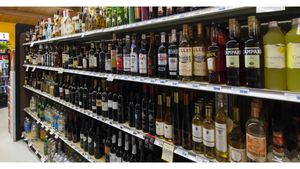REINVENTING CIES
PARIS -- As a global organization of retailers and suppliers, CIES: The Food Business Forum here works to make major industry change more manageable for its members. But now CIES is also retooling itself to better deal with change.CIES is re-evaluating its strategic direction as industry consolidation and internationalization affect its role and membership base, Richard Fedigan, the new president
May 17, 1999
DAVID ORGEL
PARIS -- As a global organization of retailers and suppliers, CIES: The Food Business Forum here works to make major industry change more manageable for its members. But now CIES is also retooling itself to better deal with change.
CIES is re-evaluating its strategic direction as industry consolidation and internationalization affect its role and membership base, Richard Fedigan, the new president and chief executive officer, said in an interview with SN.
"We're taking a fundamental look at our overall positioning and activities," he said. "Our traditional products and services are doing well, but we must reinvent ourselves. We need to define our added value."
Fedigan discussed the organization's moves in advance of CIES' Annual Executive Congress in Stockholm, Sweden, June 6 to 8. Fedigan took the top spot last December, succeeding Etienne P. Laurent, who headed CIES for 14 years.
CIES, which describes itself as a global food-business network, is comprised of 257 retailers and more than 200 suppliers from 48 countries. Among its repositioning steps was the recent hiring of a consultant to examine its operations and suggest new directions. CIES may consider more joint-venture activities and will mull new ways of bringing together retailers and manufacturers. Also on the agenda are enhanced uses of technology and a determination to create more action plans for the industry.
What sparked the need for this re-evaluation? The food business went from regional to international and communications methods were enhanced, Fedigan said. In the past year there were more than 25 retail mergers of more than $200 million, with many involving the crossing of borders. "These trends show no signs of abating," he said.
CIES found it is no longer the sole facilitator for many global efforts. "The world is becoming more complex," Fedigan said. "As a network of top executives, in the past they'd get together at our conferences. Now top managements of food businesses just pick up the phone and talk. And they're involved in a proliferation of initiatives, like ECR and other conferences. The industry communicates more now since communication tools have improved."
Indeed, competition for CIES has meant that "everyone from consultants to technology vendors are organizing conferences. Even our own members are involved." Fedigan noted that European retailers Sainsbury and Promodes have training universities for their associates.
"But we're finding that much of the competition is not for conferences; it's for top executives' time and mind-share," he said.
CIES is responding with internal and external changes. The organization has installed a new structure with a very young team, Fedigan said. It is also more results-oriented. "We must run this more like a business," Fedigan said. "We want to foster creativity, but while more rigorously defining business goals and achievement measures."
CIES has hired an international management consultant to thoroughly examine its business and help create a strategic analysis. That venture will include consultation with members and nonmembers, Fedigan said.
BUILDING SUPPLIER-RETAILER RELATIONS
Fedigan already has some early ideas for new directions. He hopes to further leverage CIES' role as a trusted party in relations between trade partners. "We're a rarity because both suppliers and stores are full members," he said. "We can broker things for them. We can referee battles between suppliers and retailers." He also sees the potential for selective joint ventures. "We're constantly courted by associations -- national and regional -- to do joint ventures with us. We're also being courted for this by international firms, consultants, technology vendors and others. We can't do all these things, but we can add value by managing a limited number of relationships to maximize the knowledge and competence of some companies that are investing in the future of retail."
As an example, he said, CIES could link with a major consulting company for a project such as benchmarking. "CIES could gather the data from retailers and suppliers without divulging the specific data to consultants. We are trusted by the suppliers and the retailers."
Perhaps the most basic new role for CIES is to extend its information gathering into action plans. "We haven't been good at synthesizing information and reducing it into bite-size chunks for action," he said. "There's so much information out there. We must render that into actionable knowledge."
CIES' efforts to find new strategic directions don't indicate the organization's membership base is weakening, Fedigan said. "Our membership numbers are still extremely well balanced," he said. "We have more retail members than before. It's partly due to more expansion by CIES in Asia, Latin America and North America. But also, with internationalization by retailers, we gain members when one takes over another that wasn't a member."
LINKING INTO TECHNOLOGY
CIES is targeting technology to help spur new member services. "We're investing in technology," he said. "We'd like to create clubs of electronic communities between the dates of our trade events."
CIES' new Web site has hot links for many of its members and the organization is launching a daily news service. "Increasingly, we see electronic tools and communications more important," he said. "Will electronic networking and the Web replace one-to-one meetings and relationships? We see no evidence of that. But the two will go hand in hand."
On the subject of one-to-one meetings, the Stockholm convention has been planned with the theme "Value and Values in the New Century." "The drivers for consumers will increasingly be more emotional: values-based and emotional relationships," Fedigan said. "For instance, genetically modified food is a major issue in Europe. Sainsbury, along with other retailers, is trying to establish a source of conventional genetically unmodified soya beans. Some retailers may make suppliers source genetically unmodified products. Retailers are much more proactive."
Fedigan said it's appropriate the event is being held in Scandinavia, which is known for having a responsible attitude toward the environment. "It's an appropriate place for the topic of accountability: what consumers will expect beyond price, quality and convenience. And how soon that topic will be a strategic threat for retailers."
The conference's agenda reflects this theme. The opening session addresses trends including the polarization of society and the controversy over food-safety issues. That will kick off with a keynote address by Helmut Schmidt, former Chancellor of Germany, and a welcoming address by Senator Feargal Quinn, managing director of Superquinn, Ireland. Quinn is also the current chairman of CIES.
David Rosenberg, director of environmental affairs for Ahold, Zaandam, Netherlands, will be part of a panel discussing ethical issues related to the environment. Reg Clairs, former chief executive officer of Woolworth's Australia, will address "Winning Trust -- the Real Leadership Challenge."
U.S. RETAILERS MULL GLOBAL DEVELOPMENTS
While CIES' big conferences bring together the global industry, its regional activities help maintain the organization's momentum. Discussing North American trends, Fedigan said some U.S.-based operators are more interested in global retail events. Wal-Mart became a CIES member more than a year ago and Albertson's and H.E. Butt Grocery Co. became members this year.
"For U.S. retailers there's increasingly the realization that interesting things are happening outside the U.S.," he said. "And except for Wal-Mart, no U.S. retailer is successful outside the U.S. So there may be the perception in the U.S. that they need to find out what's going on and what international European groups are increasingly up to, such as, will these groups come into the U.S. at an accelerated rate?"
In North America, CIES has a relatively new team in place, led by Jonathan Berger, general manager for this region. CIES is targeting for membership not only the big retailers and suppliers but also innovative niche players, Fedigan said.
CIES' Congress of the Management Development Program will be held in the United States this year. The event, slated for Oct. 10 to 13 in Chicago, brings together executives who are potentially future senior managers in their companies to hear presentations and visit local stores. In Chicago, the participants will visit retailers including Meijer Inc., Dominick's Supermarkets, Jewel Food Stores, Whole Foods Market and a Wal-Mart Supercenter.
SPREADING ECR'S BENEFITS
CIES has taken a major role in bringing the principles of Efficient Consumer Response to the world. Fedigan said ECR in Europe has become more demand-side oriented now that operators have mastered the supply side.
The Fourth Annual ECR Europe Congress held recently emphasized "putting the consumer 'C' into ECR," Fedigan said. The Congress was sponsored by CIES and European organizations AIM, EuroCommerce and EAN.
"Retailers and suppliers are using loyalty-program data to create value solutions," Fedigan said. "There's a shift from products to solutions. Also, they are helping to educate consumers."
ECR in Asia is still in its infant stages, and the economic crisis has added incentives for eliminating inefficiencies, Fedigan said. CIES is a facilitator of the Asia ECR Council, which is the charter for cooperation in the region. The council is coordinating initiatives in eight countries.
"Movements are beginning," he said. "There's a lot of work on standards, such as in scorecarding or pallets."
In Latin America, ECR has been pursued primarily in the form of supply-side initiatives by CIES members in Argentina, Brazil and Colombia.
Fedigan described a growing feeling about a new level of global ECR cooperation. "There may be an argument for worldwide coordination of ECR," he said. "We would be well placed at CIES to look at a world initiative. We've talked on that subject with EAN in Europe, UCC in the U.S., AIM in Europe, and GMA in the U.S. Such a venture would go beyond global ECR standards. It could include things like partnerships focused on the demand sides, getting into integrated value solutions."
ASSESSING Y2K AND THE EURO
Fedigan is leading CIES at a pivotal moment as companies await the implications of the year-2000 computer crisis and the European currency transition toward the Euro.
"We are big supporters of the Euro," he said. "We think it's good and absolutely necessary. I think it is going to facilitate a degree of transparency in pricing and purchasing that hasn't existed before."
However, CIES is concerned because, in 2002, when coins and notes are issued, there will be a six-month phased introduction before local currencies are eliminated.
"We will see retail challenges of handling two currencies at the same time," he said. "Consumers expect that retailers will educate them. Hopefully, companies will see it as an opportunity, not a chore."
He noted French retailer LeClerc has been double-pricing for some time to ease the transition for consumers.
The millennium bug is a more immediate issue, which Fedigan said probably isn't the crisis that some expect. "It's a concern, but in 12 European countries national committees of retailers and suppliers are working on it," he said. "The American Red Cross advised stocking up like a winter storm. I'm more optimistic. The larger companies are prepared. I'm a little worried about some smaller companies."
About the Author
You May Also Like




